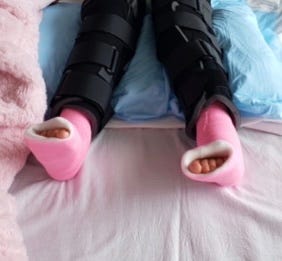Discrimination in medicine, Oregon legislators speak on paid parent caregivers, family adopts 6 disabled kids
News round-up for the week of July 2
Each week, we showcase a picture of real life from the Medical Motherhood community. If you’d like to participate, simply reply to this email. The intent is to show YOUR experience as a medical parent, not your child. What do you want people to know about the #medica…




